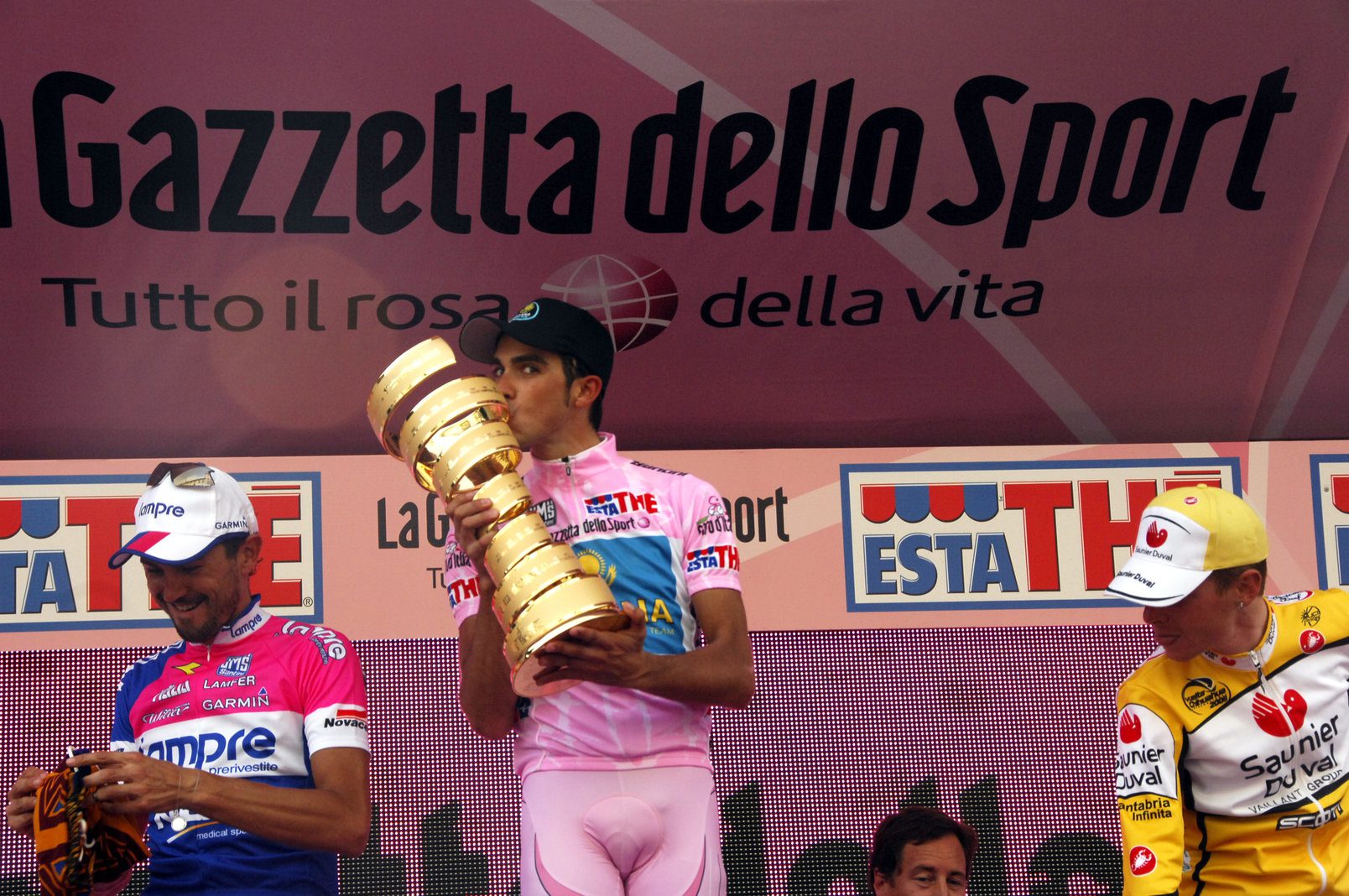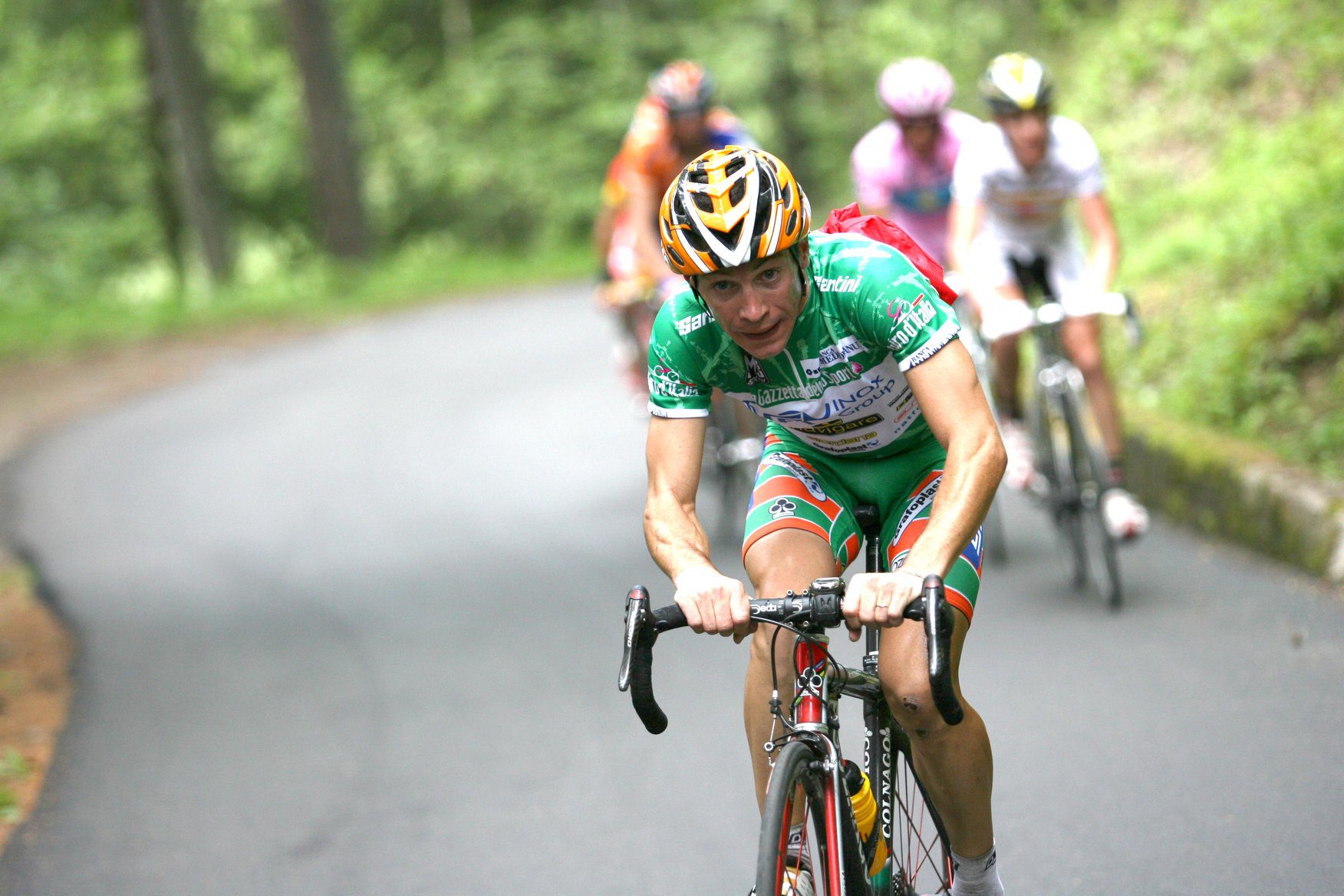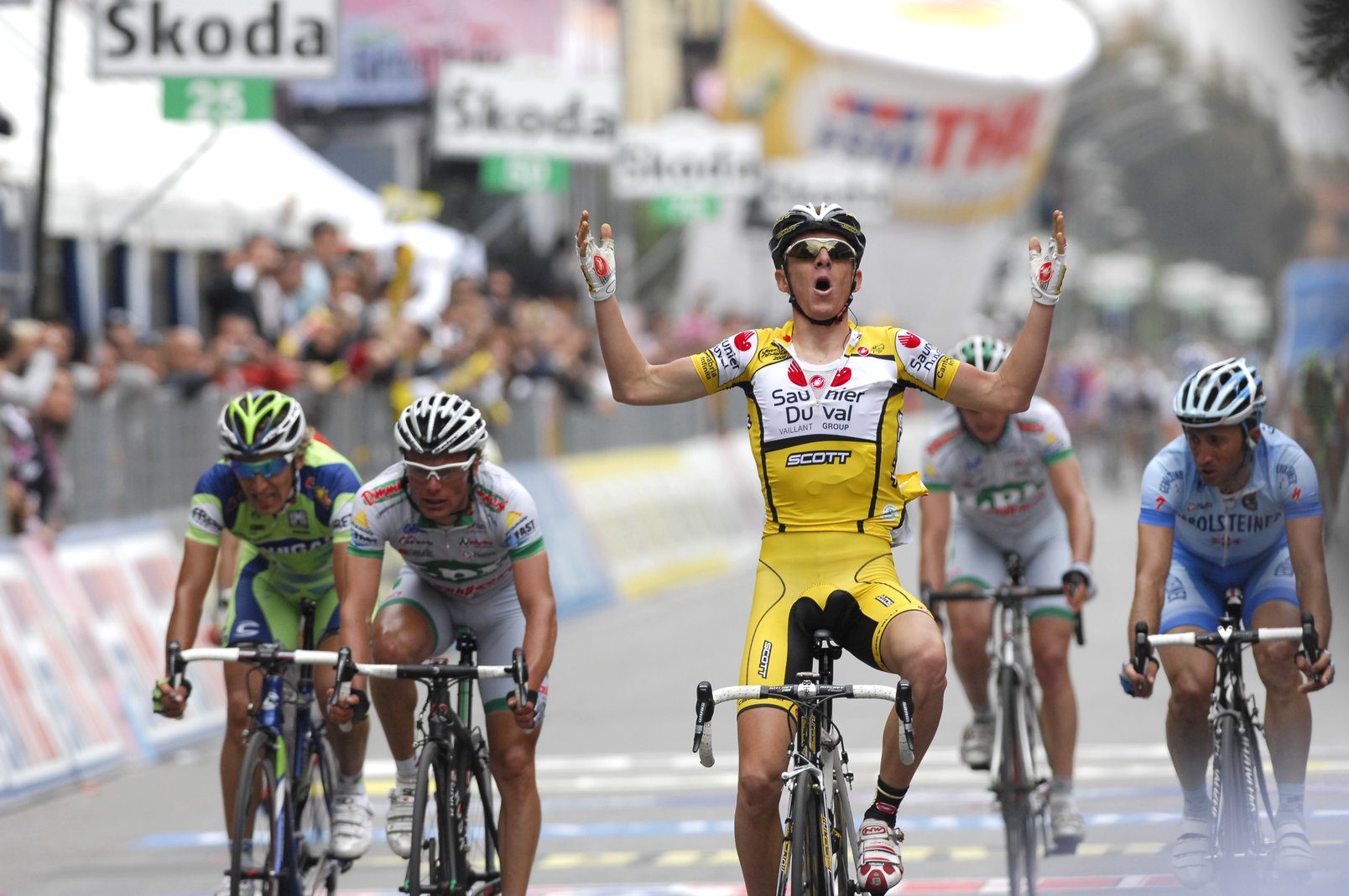The first half of Alberto Contador’s 2008 Grand Tour double concluded twelve years ago in Milan
Several of the 91st Giro d'Italia's big names would face doping scandals

Twelve years ago in Milan, Alberto Contador used the 2008 Giro d’Italia’s 28-km time trial finale to increase his race lead from four seconds over Riccardo Ricco to nearly two minutes and earn his first pink jersey. Contador would go on to win his first Vuelta a España that September to not only claim all three Grand Tours in two seasons, but also take the first Grand Tour double of the 21st Century and the only one of his career.
Grand Tour Doubles
Fausto Coppi 1949 – Giro, Tour
Fausto Coppi 1952 – Giro, Tour
Jacques Anquetil 1963 – Vuelta, Tour
Jacques Anquetil 1964 – Giro, Tour
Eddy Merckx 1970 – Giro, Tour
Eddy Merckx 1972 – Vuelta, Tour
Eddy Merckx 1973 – Vuelta, Giro
Eddy Merckx 1974 – Giro, Tour
Bernard Hinault 1978 – Vuelta, Tour
Giovani Battaglin 1981 – Vuelta, Giro
Bernard Hinault 1982 – Giro, Tour
Bernard Hinault 1985 – Giro, Tour
Stephen Roche 1987 – Giro, Tour
Miguel Indurain 1992 – Giro, Tour
Miguel Indurain 1993 – Giro, Tour
Marco Pantani 1998 – Giro, Tour
Alberto Contador 2008 – Giro, Vuelta
Chris Froome 2017 – Tour, Vuelta
However, it would turn out that the 2008 Giro was a real mess.
Contador was lucky to be in the 91st edition. This was the year before the WorldTour was established, and the Giro had initially invited 14 of the 18 ProTour teams and seven Pro Continental teams. The excluded ProTour teams were Contador’s Astana, High Road, Credit Agricole and Bouygues Telecom, which RCS Sport director Angelo Zomegnan said were not invited based on criteria like ethics, quality, international recognition and long-term relationships with RCS. Later, High Road and Astana were allowed to come, with the latter given the green light six days before the start; Italian Pro Continental side NGC Medical–OTC Industria Porte was excluded instead.
Contador expected his main competition to be reigning champion Danilo Di Luca, but the Killer wasn’t especially lethal that May. There wasn’t much of a threat from 2001 and 2003 champion Gilberto Simoni either. Instead, Ricco, who was sixth the year before, won two stages in the first week to become Contador’s closest rival.
Another GC protagonist was Emanuele Sella, who had won a stage in 2004 and come 10th overall in 2005. Sella raced for the green and orange clad CSF Group–Navigare team, now Bardiani–CSF–Faizanè. The diminutive climber won three of the final eight stages to come sixth on GC, win the mountains jersey and lead his squad to the team competition trophy.

Ricco was the first to fall from grace, testing positive for CERA, a third-generation blood booster, during the Tour de France that July. His Saunier Duval–Scott team withdrew from the race. Ricco was the third rider to test positive for banned substances during the 2008 Tour de France. After the race, four riders also tested positive, including third place and King of the Mountains Bernhard Kohl. Ricco would come back after a two-year suspension with Vacansoleil, make himself sick with a self-administered blood transfusion, get fired, return to professional cycling with Croatian Continental team and then be suspended for 12-years starting in 2012.

Sella would test positive for CERA in an out-of-competition sample taken in late July and name teammate Matteo Priamo as his supplier. Both got sacked by CSF. Although Sella would bounce back to the professional peloton the following August with Continental side Carmiooro & A-Style and go on to race the Giro four more times with Androni Giocattoli, Priamo, who never tested positive, was suspended for four years and never raced again.
Contador, already having been excluded from the 2006 Tour de France for connections to the Operation Puerto doping case, would be found with clenbuterol in a urine sample taken on a rest day of the 2010 Tour. He would continue to race, and it would take until February 2012 for the Court of Arbitration for Sport to strip him of his 2010 Tour and 2011 Giro titles. He was suspended from February to September 2012.
Di Luca would test positive for CERA in the 2009 Giro, lose his GC runner-up spot and serve a suspension. Another positive test just before the 2013 Giro would lead to a lifetime ban.
Fourth place in the 2008 Giro after wearing pink for four days and winning a time trial, and third in 2009, Franco Pellizotti would also test positive in July 2009 and be suspended for two years, losing that third place. He currently serves as a DS for Bahrain-Merida.
The surprise third place in the 2008 Giro was Marzio Bruseghin. Bruseghin raced 23 Grand Tours over 14 years of his career and completed all but one of them.
